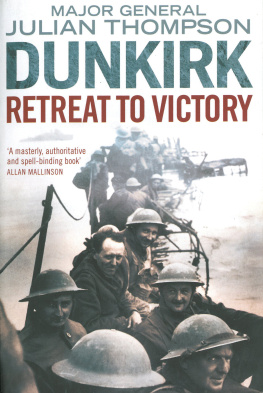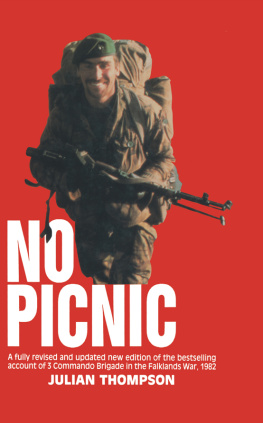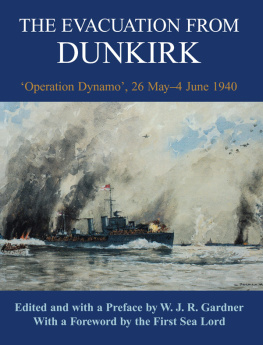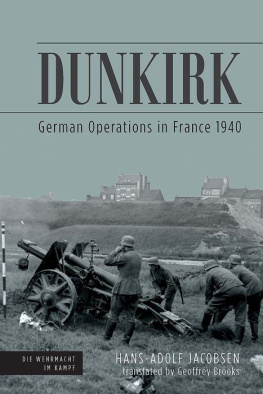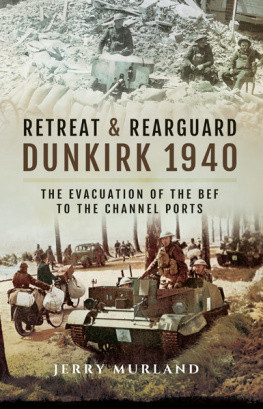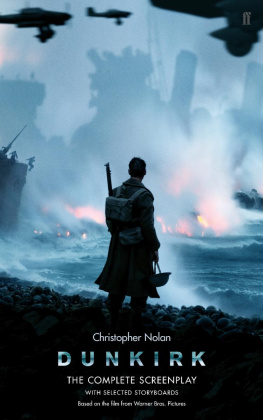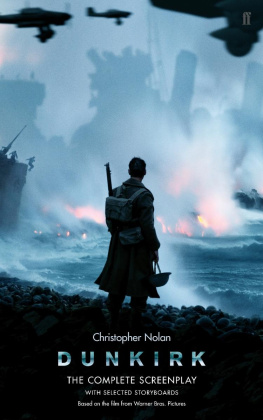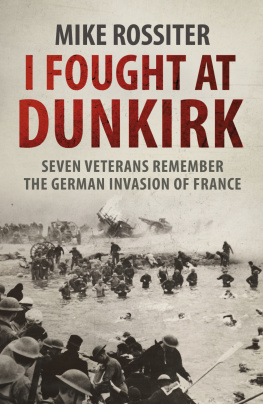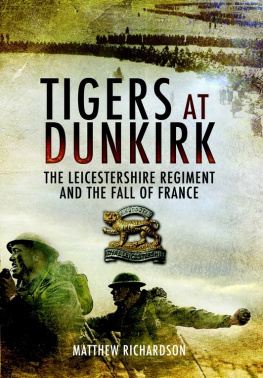Julian Thompson - Dunkirk: Retreat to Victory
Here you can read online Julian Thompson - Dunkirk: Retreat to Victory full text of the book (entire story) in english for free. Download pdf and epub, get meaning, cover and reviews about this ebook. year: 2011, publisher: Skyhorse Publishing Inc., genre: History. Description of the work, (preface) as well as reviews are available. Best literature library LitArk.com created for fans of good reading and offers a wide selection of genres:
Romance novel
Science fiction
Adventure
Detective
Science
History
Home and family
Prose
Art
Politics
Computer
Non-fiction
Religion
Business
Children
Humor
Choose a favorite category and find really read worthwhile books. Enjoy immersion in the world of imagination, feel the emotions of the characters or learn something new for yourself, make an fascinating discovery.
- Book:Dunkirk: Retreat to Victory
- Author:
- Publisher:Skyhorse Publishing Inc.
- Genre:
- Year:2011
- Rating:3 / 5
- Favourites:Add to favourites
- Your mark:
- 60
- 1
- 2
- 3
- 4
- 5
Dunkirk: Retreat to Victory: summary, description and annotation
We offer to read an annotation, description, summary or preface (depends on what the author of the book "Dunkirk: Retreat to Victory" wrote himself). If you haven't found the necessary information about the book — write in the comments, we will try to find it.
Dunkirk: Retreat to Victory — read online for free the complete book (whole text) full work
Below is the text of the book, divided by pages. System saving the place of the last page read, allows you to conveniently read the book "Dunkirk: Retreat to Victory" online for free, without having to search again every time where you left off. Put a bookmark, and you can go to the page where you finished reading at any time.
Font size:
Interval:
Bookmark:
DUNKIRK
Julian Thompson joined the Royal Marines a month after his eighteenth birthday and served for thirty-four years, retiring as Major-General. His service, mainly in the Royal Marines Commandos, took him to seven continents. He commanded 3rd Commando Brigade, which carried out the initial landings to repossess the Falkland Islands in 1982 and fought most of the subsequent land battles.
He is now visiting professor in the department of War Studies, Kings College, London. He has presented a series of short Second World War commemorative films on BBC1 and contributes to both newspapers and television documentaries on matters of defence.
Also by Julian Thompson
The Imperial War Museum Book of
VICTORY IN EUROPE
The Imperial War Museum Book of
MODERN WARFARE
(editor)
The Imperial War Museum Book of
THE WAR BEHIND ENEMY LINES
The Imperial War Museum Book of
THE WAR AT SEA 19391945
The Imperial War Museum Book of
THE WAR IN BURMA 19421945
The Imperial War Museum Book of
THE WAR AT SEA 19141918
THE ROYAL MARINES
MAJOR GENERAL
JULIAN THOMPSON
DUNKIRK
Retreat to Victory

Copyright 2008, 2011 by Julian Thompson
All Rights Reserved. No part of this book may be reproduced in any manner without the express written consent of the publisher, except in the case of brief excerpts in critical reviews or articles. All inquiries should be addressed to Arcade Publishing, 307 West 36th Street, 11th Floor, New York, NY 10018.
Arcade Publishing books may be purchased in bulk at special discounts for sales promotion, corporate gifts, fund-raising, or educational purposes. Special editions can also be created to specifications. For details, contact the Special Sales Department, Arcade Publishing, 307 West 36th Street, 11th Floor, New York, NY 10018 or info@skyhorsepublishing.com.
Arcade Publishing is a registered trademark of Skyhorse Publishing, Inc., a Delaware corporation.
Visit our website at www.arcadepub.com.
10 9 8 7 6 5 4 3 2 1
Library of Congress Cataloging-in-Publication Data is available on file.
ISBN: 978-1-61145-314-0
Printed in the United States of America
I must especially thank Roderick Suddaby, Keeper of the Department of Documents, and Margaret Brooks, Keeper of the Sound Archive at the Imperial War Museum London, and their staffs, for the help and encouragement they offered me while I was writing this book particularly for drawing my attention to much material that has remained unpublished until now. Also at the Imperial War Museum, Hilary Roberts, David Parry and the staff of the Photographic Archive were, as always, patient and kind; likewise the staff of the Department of Printed Books.
I was very fortunate to have had access to the unofficial war diary of A Squadron the 4th/7th Royal Dragoon Guards, which contains much hitherto unpublished material covering the Squadron's activities during the fighting withdrawal to Dunkirk and subsequent evacuation. I am indebted to the late Lieutenant Colonel Alastair Morrison MC 4th/7th Royal Dragoon Guards, who alerted me to the existence of this diary and who also gave me access to the Regiment's unofficial history. I would like to thank Cecil Newton, Secretary of the 4th/7th Royal Dragoon Guards Creully Club, for sending me a copy of the diary, and Mrs Verdin, the widow of the late Major Verdin.
During the writing of the book, I greatly valued the help and wise advice of my editor at Pan Macmillan, Ingrid Connell. The maps were expertly drawn by Martin Lubikowski, to whom many thanks.
Jane Thompson was a constant support to me, a wise adviser, and a meticulous research assistant. As always, without her help this book would not have been published.
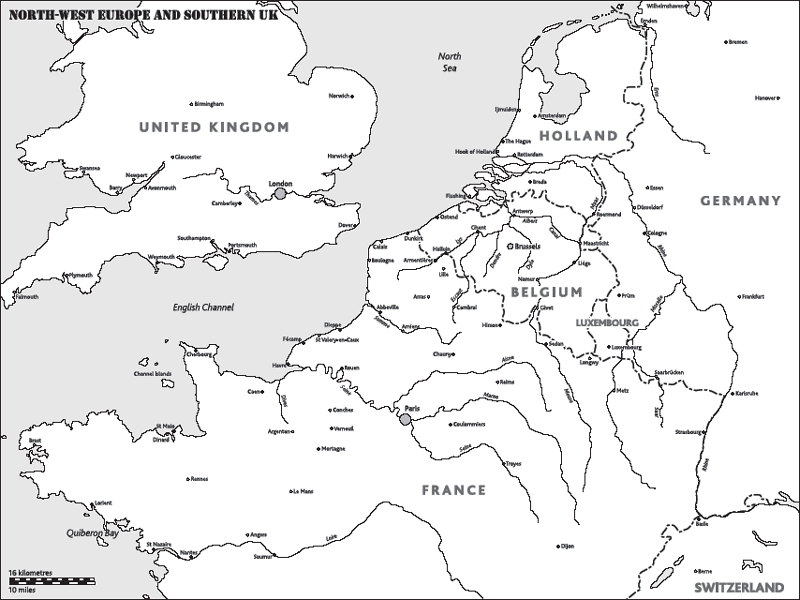
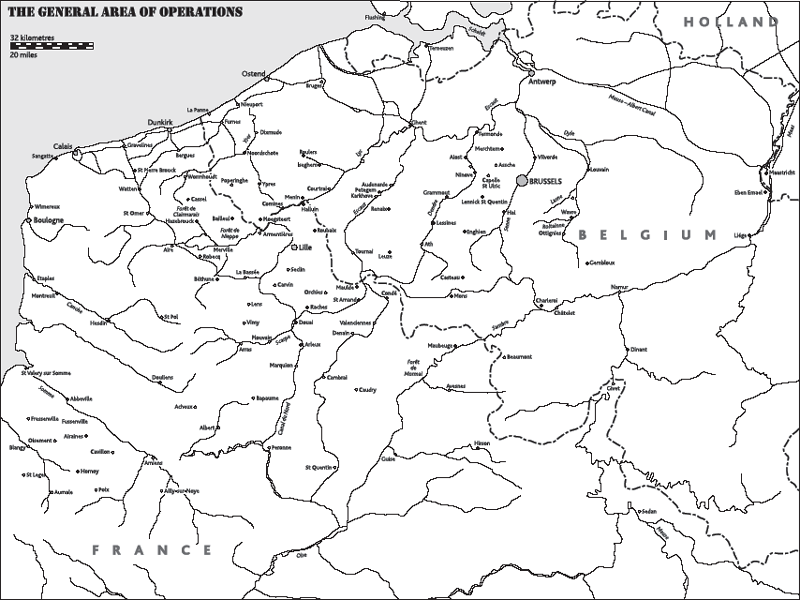
This book tells the story, from the point of view of the British Expeditionary Force (BEF), of the campaign in France and Flanders in 1940 that led to the evacuation from Dunkirk. It does not quite end there, for the British Army also participated in the fighting south of the Somme, a campaign almost unknown to most British readers. This was followed by yet another evacuation of nearly 150,000 British soldiers of what was sometimes called the Second BEF.
The story of the saving of the BEF at Dunkirk has been told often, perhaps too often in the context of the dithering of Hitler and the immortal exploits of the little ships to quote Brian Bond, a distinguished historian of the period. Less well known is the narrative of continuous hard fighting experienced by the main body of the BEF in the three weeks between the German invasion of France on 10 May 1940 and the end of the evacuation from Dunkirk on 4 June. When I mentioned that I was writing a book about the campaign to a field marshal, a distinguished veteran of the Second World War (but not of Dunkirk), his reaction was that there was plenty to say about the actual evacuation. He added, But the trouble is that the BEF did so little fighting before the evacuation. The implication was that there was little to say on the subject. It has been my purpose to show that not only did the BEF have to fight hard, it had to do so while carrying out that most difficult phase of war, a withdrawal while in contact with a ruthless enemy. Many armies in history have found retreat more than they can handle and have disintegrated before surrendering, or have been cut to pieces with huge loss. The former was the fate of both of Britain's allies in this campaign.
The BEF of 1940 was not the best-trained or best-equipped army that has left our shores to fight overseas. Years of political dithering had seen to that. It was certainly nothing like as well trained as the superb German Army, throughout the Second World War perhaps one of the finest fighting organizations the world has ever seen. Viewed overall the BEF in 1940 lacked that difficult-to-define flair that marks out brilliant soldiers from plain practitioners of the art. Or put another way they were not quick enough on the draw tactically speaking. Of course there were exceptions some individuals and units showed this flair but it did not run through the whole force like a common thread. This comes only with training and good leadership. The BEF did not have enough time to train. It was not the fault of the soldiers, and the reasons for it are made plain in this book.
But, despite that, the BEF gave the Germans a testing run for their money, and this is made clear in the German assessment of the British soldier as a fighter of high value, in the report quoted in my final chapter. How much more challenging it would have been for the Germans had the BEF been better equipped and trained. It is hard to fault much of the leadership of the BEF some of it was outstanding, as the reader will discover. From the ashes of the 1940 campaign in France and Flanders emerged many of the successful senior commanders in the British Army in the Second World War, starting with the man who would be the Chief of the Imperial General Staff from 1941 to the end of the war, Field Marshal Sir Alan Brooke (later Viscount Alanbrooke). The others include, and the list is not exhaustive, future army commanders Montgomery, Alexander, McCreery and Dempsey; corps commanders Lumsden, Horrocks, Ritchie (who briefly commanded Eighth Army) and Crocker; and divisional commanders Adair, Rennie and Whistler. These officers proved themselves in moments of the utmost danger in 1940, which would have broken lesser men, and sometimes did.
Next pageFont size:
Interval:
Bookmark:
Similar books «Dunkirk: Retreat to Victory»
Look at similar books to Dunkirk: Retreat to Victory. We have selected literature similar in name and meaning in the hope of providing readers with more options to find new, interesting, not yet read works.
Discussion, reviews of the book Dunkirk: Retreat to Victory and just readers' own opinions. Leave your comments, write what you think about the work, its meaning or the main characters. Specify what exactly you liked and what you didn't like, and why you think so.

